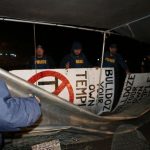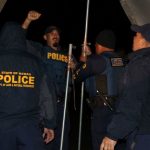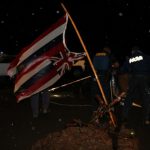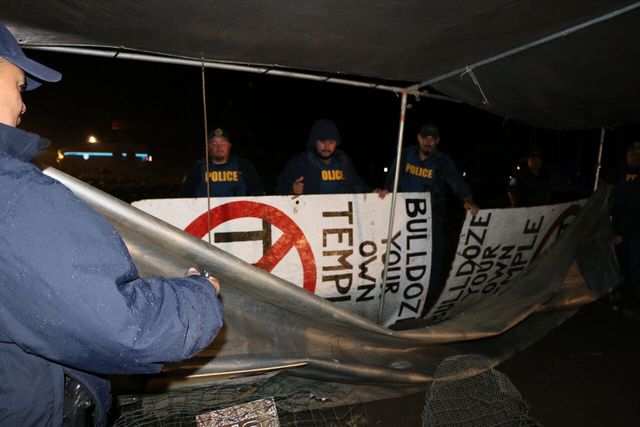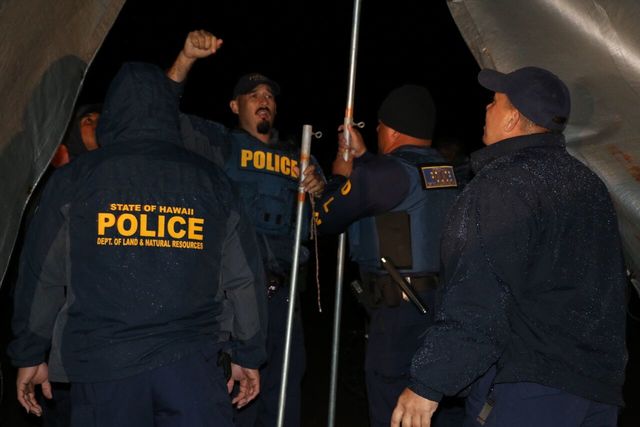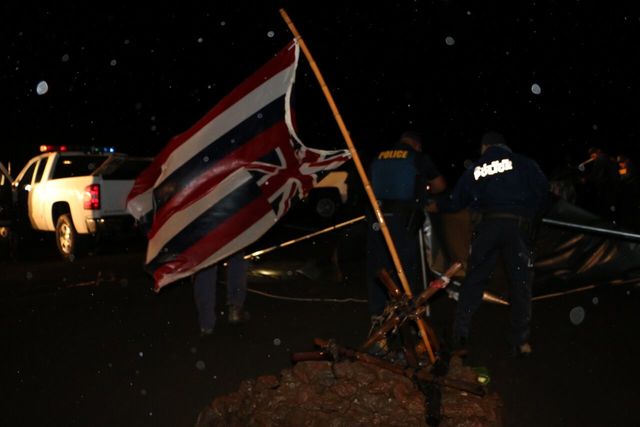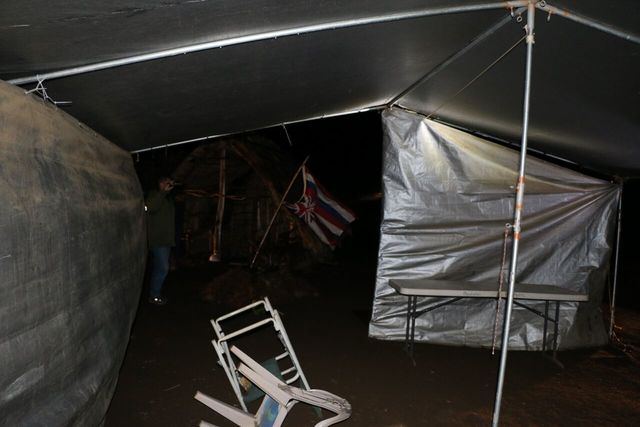After about six months on Mauna Kea, the Thirty Meter Telescope opponents’ around-the-clock vigil has come to an end.
But the Native Hawaiian protesters who say they are protecting a sacred mountain have not given up on their stance against construction of the large telescope near the summit. One protest leader says it is simply entering another phase.
Lanakila Mangauil, who helped spearhead the first blockade on the mountain nearly a year ago, said ending the 24-hour presence will allow opponents to focus more on legal battles and fine-tune arguments regarding whether the $1.4 billion project meets the criteria for building within a Conservation District.
That will be necessary, he said, if the state Supreme Court voids the project’s land use permit and the TMT International Observatory again seeks approval from the state’s Board of Land and Natural Resources.
“We’re refocusing right now on the longevity, prolonged protection and proper stewardship of this mountain,” said Mangauil, a Honokaa resident.
The TMT opponents’ camp included a large tent and hale, which protesters called their “spiritual house,” across from the Mauna Kea Visitor Information Station.
The state Department of Land and Natural Resources said both structures were illegal since they were built on public land without a permit.
Early Monday morning, 19 DLNR Conservation and Resources Enforcement officers removed the tent, which TMT opponents vacated last week after receiving a notice and being assured they would be told if construction of the telescope was going to resume. The hale wasn’t taken.
The protesters have not said they won’t try to block construction vehicles, as they have done several times, after getting that warning.
The tent belongs to a group calling itself the “Lawful Hawaiian Government,” according to protesters.
A DLNR spokesman said the enforcement action started at about 12:45 a.m. and was finished by about 1:30 a.m.
The department said officers removed the tent after its “rightful owner failed to claim it and take it down.”
The DLNR officers were supported by four Hawaii County police officers and a Mauna Kea ranger.
While the tent is gone, Mangauil said some TMT opponents will continue to use the site to speak with tourists and island residents visiting the mountain and follow religious protocol.
Before the tent was erected, protesters kept a 24-hour vigil by sleeping in their cars. Mangauil said it’s possible some protesters might choose to stay overnight, but no one is being asked to do that.
The 180-foot-tall observatory, one of three large next-generation observatories under development, is expected to be able to see the universe’s first stars and galaxies, provide sharper images of other objects and help answer questions regarding the possibility of life in other solar systems. Partner countries include the United States, Canada, China, India and Japan.
Email Tom Callis at tcallis@hawaiitribune-herald.com.
